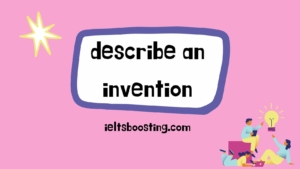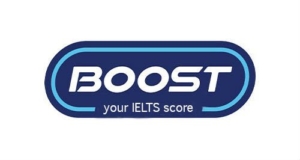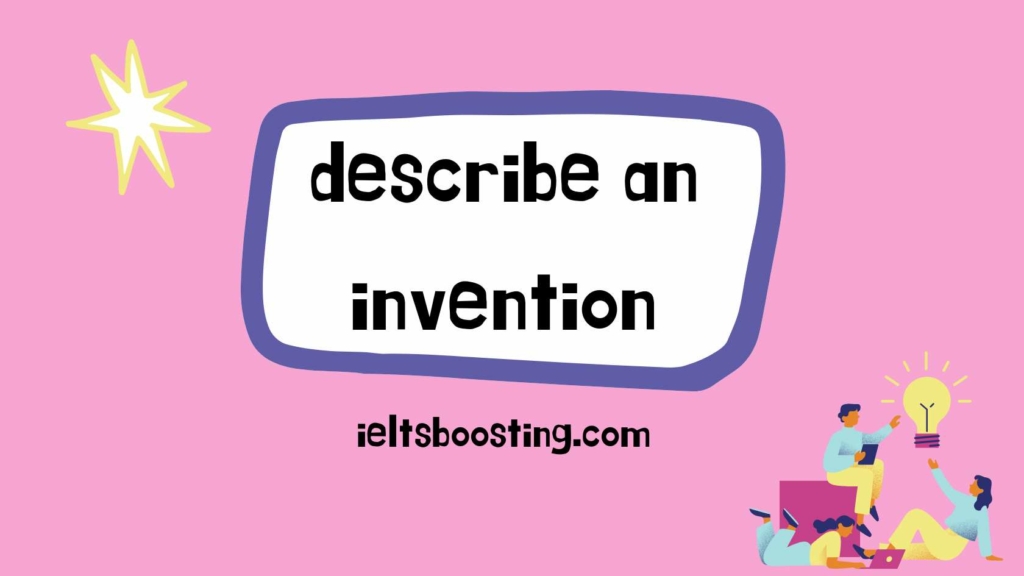Describe an invention
You should say:
● What the invention was
● What it can do
● How popular it is
● And explain whether it is difficult or easy to use
Sample answer to describe describe an invention
One invention that plays a crucial role in my daily life is my smartphone. It typically includes features such as calling, texting, internet browsing, email, GPS navigation, camera capabilities, and access to a wide range of applications (apps).
My smartphone serves a multitude of purposes in my daily life.
- It allows me to communicate with friends, family, and colleagues through calls and texts.
- I can access the internet to browse for information, check emails, and stay updated on news and social media. The built-in GPS helps with navigation, whether I’m driving or walking.
- The high-quality camera lets me capture photos and videos on the go, and the availability of various apps helps with productivity, entertainment, and organization.
Smartphones have become incredibly popular and ubiquitous worldwide. In most developed countries, it’s challenging to find someone who doesn’t own or use a smartphone regularly. In fact, the smartphone has transformed the way people live and work, and its popularity continues to grow.
Smartphones are designed to be user-friendly, so the majority of people can use it easily
My smartphone is incredibly useful because it integrates many functions and tools into a portable device. It enhances communication, provides access to vast amounts of information, and helps with everyday tasks. For instance, I can quickly check my emails on the go, navigate through unfamiliar areas, capture memorable moments with the camera.
In summary, it is indispensable part of my daily routine.
Explore more: ielts speaking part 2

describe an invention
Part 3-Describe an invention
What qualities do inventors have?
Inventors typically possess a unique blend of creativity and analytical thinking, allowing them to envision and solve complex problems in innovative ways. They often have an insatiable curiosity, constantly questioning how things work and how they can be improved. Additionally, perseverance is key; inventors frequently face setbacks and challenges, but their determination to see their ideas come to fruition is what sets them apart.
Advanced Vocabulary:
- Insatiable curiosity: An unquenchable desire to know or learn about something.
- Perseverance: Steadfastness in doing something despite difficulty or delay in achieving success.
Phrase Verb:
- Come to fruition: To be realized or achieved, as in a plan or project.
Do you think only scientists can invent new things?
No, I don’t believe that only scientists can invent new things. Invention often stems from a creative spark and a problem-solving mindset, which can be found in people from all walks of life, not just in the scientific community. History is filled with examples of inventors who were not formally trained scientists but who had the vision and persistence to bring their innovative ideas to life.
Advanced Vocabulary:
- Creative spark: A moment of creativity that inspires new ideas.
- Problem-solving mindset: A way of thinking that focuses on finding solutions to issues or challenges.
Phrase Verb:
- Stems from: Originates from or is caused by.
What inventions do you think should be improved?
I believe there’s always room for improvement in the field of renewable energy technologies, like solar panels and wind turbines. These inventions have huge potential in combating climate change, but they still need to become more efficient and cost-effective. Also, plastic alternatives need further development to be more durable and biodegradable, helping to tackle the global issue of plastic pollution.
Advanced Vocabulary:
- Renewable energy technologies: Equipment and methods used to generate energy from resources which are naturally replenished.
- Biodegradable: Capable of being decomposed by bacteria or other living organisms, thus avoiding pollution.
Phrase Verb:
- Tackle the global issue: To confront or take on a significant problem that affects the entire world.
Are there any other inventions that make the world better?
Absolutely, there are many inventions that have made the world a better place. Medical advancements like vaccines and antibiotics have saved countless lives and improved global health standards. Similarly, the internet has revolutionized communication, allowing for instant connection and access to information worldwide, significantly enhancing global connectivity and knowledge sharing.
Advanced Vocabulary:
- Global health standards: The generally accepted levels of health care and disease prevention across different countries and populations.
- Global connectivity: The state of being connected and having interactions across the world.
Phrase Verb:
- Revolutionized communication: Dramatically changed the way people interact and share information.
Do all inventions bring benefits to our world?
Not all inventions bring only benefits; there’s often a flip side. Some technologies, like plastic production, have led to environmental challenges, highlighting the need for responsible innovation and use. Also, advancements in digital technology, while connecting us, have raised concerns about privacy and the impact on social interactions, reminding us that progress sometimes comes with complex implications.
Advanced Vocabulary:
- Responsible innovation: Developing new products and technologies in a way that takes into account the potential impacts on society and the environment.
- Complex implications: Complicated and often unforeseen consequences or results.
Phrase Verb:
- Raised concerns: Brought attention to worries or problems.
Who should support and sponsor inventors, governments or private companies?
Support and sponsorship for inventors can ideally come from both governments and private companies, as each has its unique strengths. Governments can provide more stable funding and support for research in crucial areas like healthcare or environmental protection, where the primary goal isn’t profit. On the other hand, private companies can offer inventors resources and expertise in commercializing their inventions, helping to bring innovative products to market more efficiently.
Advanced Vocabulary:
- Stable funding: Reliable and consistent financial support.
- Commercializing: The process of bringing new products or services to the market.
Phrase Verb:
- Bring to market: To make a product available for sale to the public.


